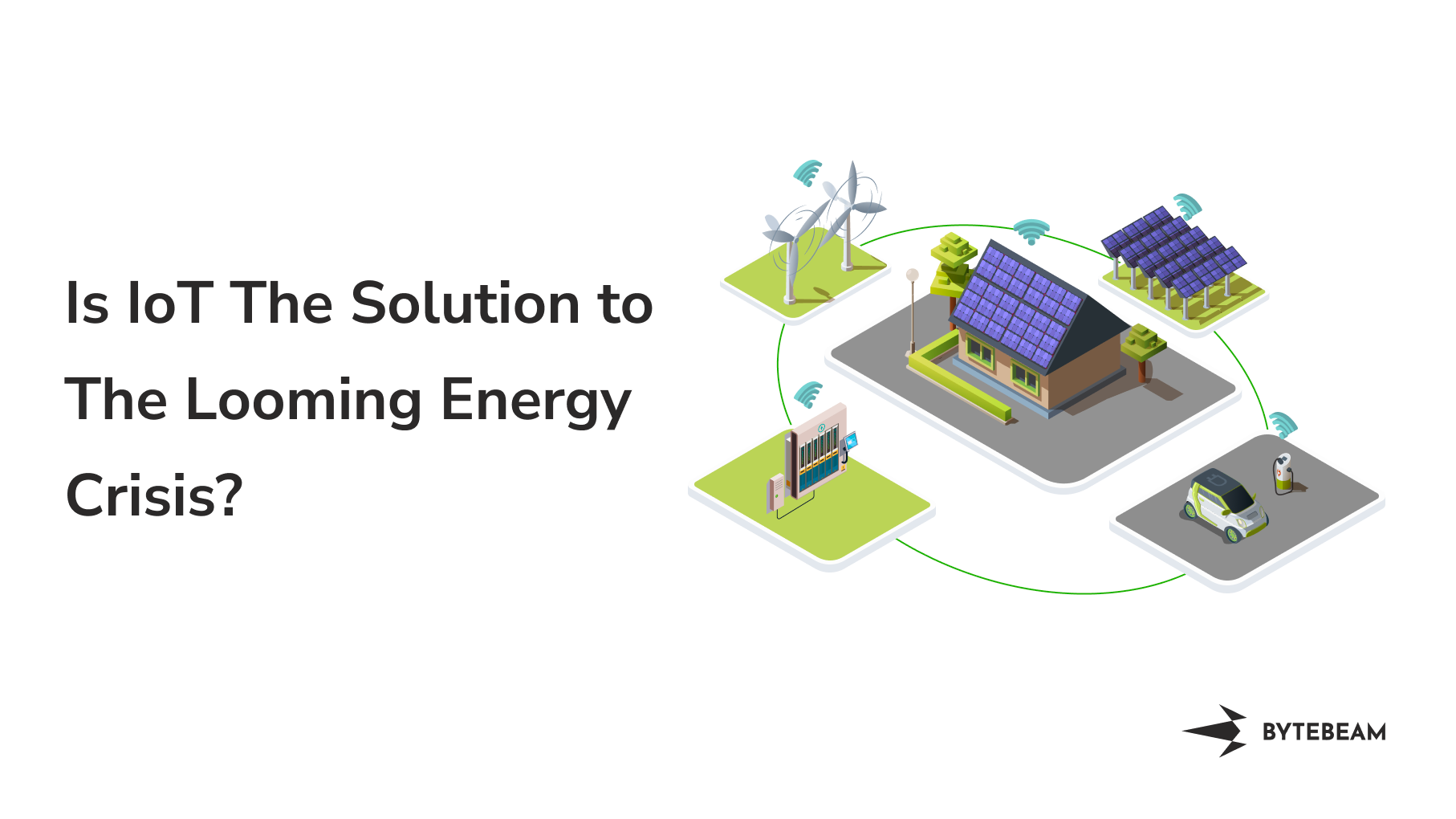Is IoT The Solution to The Looming Energy Crisis?

The world is now paying the price for ignoring climate change warnings for decades. But in some cases, we are literally paying a high price!
Several parts of the world, especially in Europe, expect one of the coldest winters ever, and energy prices have already shot up. Add to that the growing demand and low supply of fossil fuels, and we’ve got a crisis neatly wrapped, just around the corner.
But before we get into the analysis or solutions, let us try to understand what this crisis entails.
The current scenario
Europe has been experiencing an average inflation rate of 9.1% this year. Several factors such as the Ukraine war, changing weather, overall geopolitical climate, and inflation have led to panic across the world.
While the energy crisis is technically limited to Europe, the effects are far-reaching. The Ukraine war has led to several countries putting sanctions against Russia. As a result, a lot of energy that was imported from Russia is now unavailable. Consequently, the European Union has started buying gas and fossil fuels from other sources, which would usually go to developing countries.
Natural gas prices are at a record high, which has affected manufacturing, transportation, and electricity prices the most.
IoT to the rescue
But how can IoT help? There are actually multiple answers here. Let us try to unpack each one.
Smart Governance
Extreme weather conditions tend to increase the demand for electricity and natural gas worldwide. As the weather conditions grow more and more irate, this phenomenon is only making the crisis worse.
With strategically placed sensors in various geographical locations, governments can predict demand in multiple locations. For example, Germany is expecting one of the coldest winters in 2022-23, and naturally, the demand for natural gas has shot up. However, with sensors across the country, the government could prioritize the supply of gas to the coldest areas and even prepare for upcoming years’ demand.
Smart Grids
Another macro-level solution for the energy crisis is introducing smart city solutions in more places. This will allow governments to introduce smart grids for utilities. Smart grids are energy grids that manage and monitor energy distribution as well as consumption.
Smart grids can effectively manage energy loads to curtail any shortages, as well as collect necessary data for energy management.
Global applications of smart grids could allow us to make dramatic changes in our energy consumption.
Sustainable shift
One of the biggest reasons for our continued dependence on fossil fuels and natural gas is that the shift to renewable energy is a lot more complex and expensive than previously imagines.
Firstly, established energy businesses are unwilling to invest in renewable energy. The reason: they have a lot invested in fossil fuels. However, with IoT, very specific data can be extrapolated which will allow even behemoths such as Chevron or Exxon can make a plan which allows for a profitable shift to renewable energy.
Secondly, geopolitical factors make it difficult for a dramatic shift to renewable energy. Especially for countries that are heavily reliant on fossil fuels, such as Saudi Arabia. Smart solutions can pave the way for these geopolitical areas to find hybrid solutions which balance the trade aspect of energy.
Solutions like WattTime and Alencon Systems are already making the shift to renewable energy a lot easier with IoT at the forefront.
Energy usage
While individual usage makes a small impact on overall consumption, it can have a cumulative effect on the overall numbers. Smart home solutions can help individual households monitor their energy consumption and be mindful of their usage.
Additionally, this also helps individuals to ensure that their energy bills don’t add to their economic burden in uncertain times.
Conclusion
Internet of Things is one of those technologies that can be employed for mass benefit across the world. It offers a win-win solution for business interests as well as effective governance. With an energy crisis looming over the world, we could deploy IoT solutions en masse; this may not completely avoid the crisis, but it will give us invaluable data which can be used to avoid any future crises.

